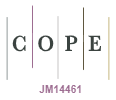Teacher education to act in the penitentiary system
DOI:
https://doi.org/10.5585/eccos.n48.13245Keywords:
Human Rights. Prison Education. Teacher training. Pedagogue.Abstract
Prison education has evolved in the educational field with the conceptual contribution of Social Pedagogy. This text deals with the training of pedagogues who work in the penitentiary system of the state of Paraná. Thus, we define as a specific objective of this article to analyze the pedagogical practice developed by the pedagogues that work in penal units to pursue the general objective of systematizing guiding principles for their formation. It develops in a qualitative approach, based on the epistemological axis of the theory as an expression of the practice (MARTINS, 2009), and takes as object of study the formation of the pedagogue for the prison system. The semi-structured questionnaire and the episodic interview were used as data collection instruments, applied to thirty-six pedagogues of the closed, semi-open and open regimes of the Paraná penitentiary system. As theoretical reference were adopted conceptions theorized by Brzezinski (1996); Garcia (2013); Gentili (1995); Julião (2012, 2014); Libâneo (2004); Martins (2009); Nóvoa (2014); Pimenta (2006); Romanowski (2014); Saviani (2008, 2009), Silva (2003); Thompson (1981) and Vásquez (2007). The study made possible the systematization of indicators of the education of the pedagogue for the prison system: training in and by practice; affirmation of experience as a reference and of theory as an expression of practice; studies focusing on the specificities of the prison context; permanent formation directed and in articulation with the other professionals who work in the penal units; formation of a political character in the sense of assuming the condition of defender of human rights in its practice and in the defense of the right to education.Downloads
References
BRASIL. Lei n.7210 de 11 de julho de 1984: instituí a lei de execução penal. Brasília, 1984. Disponível em: <http://www.planalto.gov.br/ccivil_03/leis/l7210.htm>. Acesso em: 10 fev. 2015.
BRASIL. Constituição (1988). Constituição Federal da República Federativa do Brasil de 1988. Brasília, 1988. Disponível em: <http://www.planalto.gov.br/ccivil_03/constituicao/constituicao.htm>. Acesso em: 10 fev. 2015.
BRASIL. Resolução nº 14, de 11 de novembro de 1994. Resolve fixar as regras mínimas para o tratamento do preso no Brasil. Disponível em: <http://www.portal.mj.gov.br/services?DocumentManagement>. Acesso em: 20 de jun. 2013.
BRASIL. Conselho Nacional de Educação. Resolução nº 2, de 19 de maio de 2010. Dispõe sobre as Diretrizes Nacionais para a oferta de educação para jovens e adultos em situação de privação de liberdade em estabelecimentos penais. Diário Oficial da União, Brasília, 20 maio 2010. Seção 1, p.20.
FERREIRA, Maria do Rocio Novaes Pimpão; VIRMOND, Sônia Monclaro. (Org.) Práticas de tratamento penal nas unidades penais do Paraná. Curitiba: SEJU, 2011. (Cadernos do Departamento Penitenciário do Paraná - DEPEN).
MARTINS, Pura Lúcia Oliver. A didática e as contradições da prática. Campinas, SP: Papirus, 2009.
MARTINS, Pura Lúcia Oliver. A relação conteúdo-forma: expressão das contradições da prática pedagógica na escola capitalista. In: VEIGA, Ilma Passos Alencastro (Org). Didática: o ensino e suas relações. Papirus: Campinas, 2011. p.77-103.
PARANÁ. Estatuto Penitenciário do Estado do Paraná: Decreto Estadual nº. 1276 de 31 de outubro de 1995.Curitiba, 1995. Disponível em: <http://www2.mp.pr.gov.br/cpdignid/dwnld/cep_b19_estatuto_penitenciario.pdf>. Acesso em: 15 fev. 2013.
PIMENTA, Selma Garrido. (Coord.) Pedagogia, ciência da educação? São Paulo: Cortez, 2006.
SACRISTÁN, Gimeno. Consciência e ação sobre a prática como libertação profissional dos professores. In: NÓVOA, António. Profissão Professor. Portugal: Porto Editora, 2014. p.63-92.
SANTOS, Oder José dos. Pedagogia dos conflitos sociais. Campinas: SP, Papirus,1992.
SILVA, Roberto da; SOUZA NETO, João Clemente de; MOURA, Rogério Adolfo de. Pedagogia Social. São Paulo: Expressão e Arte Editora, 2014. v.1. p.270-289.
SCHMIED-KOWARZIK, Wolfdietrich. Pedagogia dialética: de Aristóteles a Paulo Freire. Tradução: Wolfgang Leo Maar. São Paulo: Editora Brasiliense, 1983.
THOMPSON, E. P. A miséria da teoria ou um planetário de erros: uma crítica ao pensamento de Althusser. Rio de Janeiro: Zahar Editores, 1981.
VÁSQUEZ, Adolfo Sánchez. Filosofia da práxis. Consejo Latinoamericano de Ciências Sociales – CLACSO; São Paulo: Expressão Popular, 2007. Tradução: María Encarnación Moya.
Downloads
Published
How to Cite
Issue
Section
License
Copyright (c) 2019 EccoS – Revista Científica

This work is licensed under a Creative Commons Attribution-NonCommercial-ShareAlike 4.0 International License.
- Abstract 3065
- PDF (Português (Brasil)) 1378






